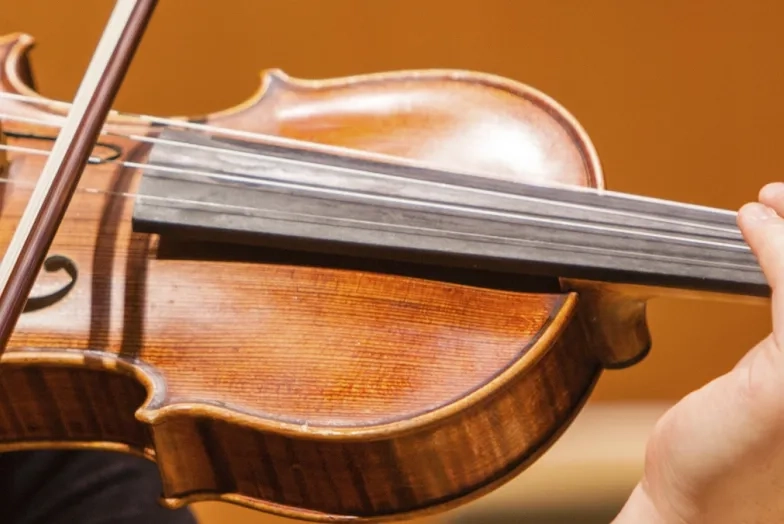Music and the Cognitive Revolution
Special Event
Lecture-Recital
How and when did music begin? How does the discovery of 40,000 year old bone flutes impact our understanding of music within the cognitive revolution? This one-hour session will focus on these important questions through a discussion of the discovery and context of Paleolithic bone flutes found in 2008 at Hohle Fels, a cave in southern Germany. Corey Jamason, SFCM chair of Historical Performance, will moderate a discussion with archaeologist Nicholas Conard of the University of Tübingen and Anna Friederike Potengowski, who will perform on copies of Stone Age bone flutes.
Speaker Profiles
Corey Jamason is a Grammy-nominated harpsichordist whose playing of Bach was described in the Los Angeles Times as displaying “the careful, due balance of objective detachment and lofty passion.” He appears frequently with American Bach Soloists, with whom he is principal keyboardist. He has performed with a variety of ensembles including the San Francisco Symphony, Los Angeles Opera, Philharmonia Baroque Orchestra, and Musica Angelica. Festival appearances include the Berkeley, Bloomington, San Luis Obispo Mozart, Music in the Vineyards, Whidbey Island, Tage Alter Musik Regensburg (Germany), Echi lontani (Sardinia), and Norfolk festivals. He is co-artistic director and conductor of Theatre Comique, a new San Francisco-based ensemble specializing in late nineteenth and early twentieth century American theater music. He is a contributing author to the History of Performance, published in 2012 by Cambridge University Press and is currently preparing an article on the performance practice of early 20th century musical theatre for Oxford Handbooks Online. Born in New York City, Jamason received degrees in music from SUNY-Purchase, Yale University, and Indiana University where he received a D.M. degree. He joined the faculty of SFCM in 2001 and holds the school’s Distinguished Chair in Historical Performance.
Anna Friederike Potengowski was born in 1975 in Germany. She studied flute and chamber music at the Music Academy Dresden and the University of Arts in Berlin. Fascinated by the creation of contemporary musical language, she has performed with various ensembles, working together with contemporary composers. For four years she was connected to the Berlin theatre “Berliner Ensemble” performing contemporary and classical theatre music. Her passion for intensive musical communication has led her to work continuously with the ensemble “Les Alliées” (flute/guitar) since the age of 16. As a reaction to the unlimited possibilities within the contemporary arts of our time, Potengowski’s artistic desires have resulted in a reduction and focus in her musical work, motivating her to search for the very origins of music. In 2010, Potengowski started working with flute reconstructions of Paleolithic wind instruments. Her work has been supported by the Hermann-Haake-Stiftung and the University of Tübingen. With Ensemble VentOs (contemporary music for Paleolithic wind instruments and percussion) she has performed at several festivals and concerts series in Germany, Switzerland, and Great Britain. Potengowski frequently presents her analyses of the finds on Paleolithic wind instrument reconstructions at archaeological conferences. Her results have been published in Archäologie in Deutschland, Mitteilungen der Gesellschaft für Urgeschichte, and Studies on Music Archaeology X. She has recorded for the European Music Archaeology Project, BBC, Canadian Broadcasting Corporations, and the French/German Programme ARTE. Her recordings are exhibited in several museums for prehistoric history.
Nicholas John Conard earned bachelor’s degrees in anthropology and chemistry at the University of Rochester in 1983. In 1986 he was awarded an interdisciplinary master’s degree in physics, geology, and anthropology in Rochester. Following studies in Freiburg and Cologne, Conard earned both master’s and doctoral degrees in anthropology at Yale University in 1988 and 1990, where he wrote his Ph.D. thesis on the archaeology of Neanderthals. In 1995 he was appointed Chair of Early Prehistory and Quaternary Ecology at the University of Tübingen. He is director of the Urgeschichtliches Museum in Blaubeuren and the Archäopark Vogelherd. He served as Dean of the Faculty of Geosciences 1998-2000 and as a vice dean of the faculty from 2004-2006. He is currently Dean of Studies for Archaeological Sciences. Conard’s main areas of research include: Paleolithic archaeology; lithic, taphonomic, faunal, and spatial analysis of archaeological sites; Pleistocene chronostratigraphy; evolution and dispersal of modern humans; environmental reconstruction and settlement history of western Eurasia and Africa, as well as the origins of agriculture and sedentism. He has directed numerous excavations and survey projects in Germany, South Africa, Syria and Iran. His excavations have documented important Lower, Middle, Upper, Epipaleolithic, and Neolithic sites, as well as early examples of figurative art and musical instruments. Results of these excavations have featured prominently in major exhibits around the world.
Presented by The San Francisco Conservatory of Music in partnership with the Leakey Foundation
